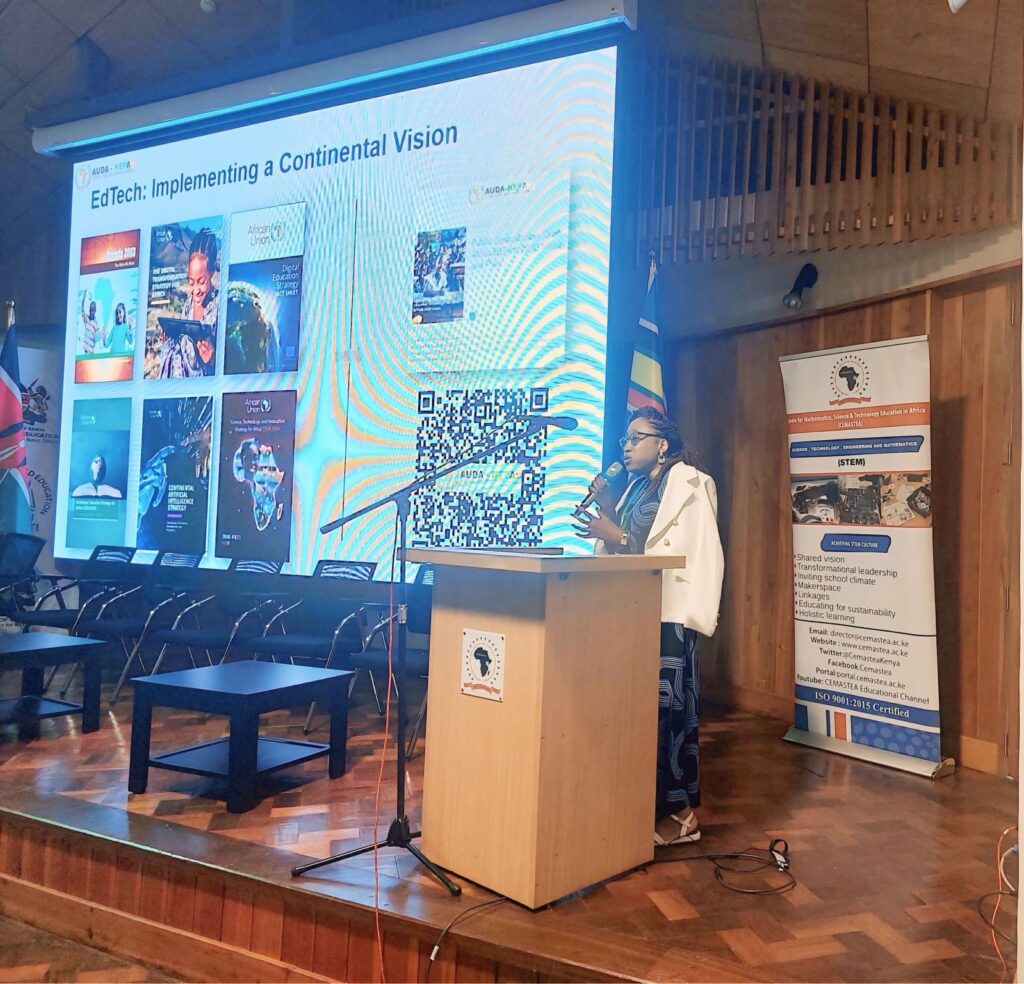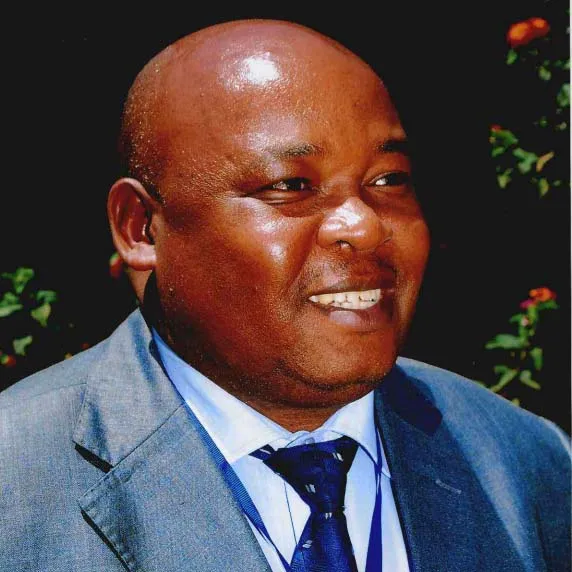
By Baboloki Semele: In a sweeping move that could redefine the future of learning across the continent, the African Union Development Agency-NEPAD (AUDA-NEPAD) has unveiled a transformative draft plan for Africa’s education sector, launching the African EdTech 2030: Vision, Plan and Policy Framework during the STEMtastic Adventures! Africa symposium in Nairobi. This initiative sets the stage for Africa not only to overhaul its education systems through cutting-edge technology, but also to lead globally in mobile-first, locally developed digital learning solutions. Rooted in the broader goals of Agenda 2063, STISA-2034, CESA 2026-2035, and the AU Digital Transformation Strategy, the new framework is poised to create a unified, tech-driven education ecosystem for all Africans, regardless of geography, gender, or background. Dr. Barbara Glover, Programme Officer at AUDA-NEPAD, emphasized that the plan is designed to catalyse inclusive, resilient, and innovation-driven education across the continent.
“We want to leverage local innovation and leadership in EdTech to transform how Africa learns,” she said.
The initiative seizes on Africa’s unique opportunity to bypass the constraints of outdated educational infrastructure. Just as mobile money revolutionised African economies where traditional banking systems were limited, mobile-first digital education can bridge existing gaps where physical classrooms fall short. Developers of the framework point out that offline-capable solutions for basic smartphones already in widespread use among African teachers can reach marginalized learners and potentially serve under-connected communities around the world.
With smartphone ownership among educators exceeding 90% in South Africa and reaching between 30% and 65% in countries like Kenya, Nigeria, and Ghana, Africa holds the technological foundation to drive this mobile-first education revolution. The vision is both ambitious and deeply inclusive: that every African learner has affordable access to high-quality, localised digital learning resources on reliable devices within an ecosystem that fosters innovation and entrepreneurship.
Practically, this would mean a student in rural Africa could access interactive lessons in their native, while a teacher in Senegal might use curriculum-aligned content developed in Nigeria all through secure, interoperable platforms. African-built educational apps would meet local needs and compete globally. This harmonised approach would ensure that student data remains nationally secure while contributing to broader continental insights.
The Vision and Plan directly address Africa’s educational crisis. With over 60% of the population under 25 and the total projected to hit 2.5 billion by 2050, education must scale rapidly. Yet challenges persist: 30 million primary-age children are out of school, and 17 million new teachers are needed by 2030 just to maintain universal access. Internet access in schools remains low, and an overwhelming 75% of African youth lack digital skills required in the 21st-century job market.

John Kimotho, one of the framework’s contributors, stressed the urgency: “It is time for a Pan-African EdTech transformation, one that turns connectivity and content investments into improved learning, inclusion, and economic opportunity for every learner.”
The framework outlines six core objectives to guide implementation. These include expanding access through affordable, offline-ready digital devices; developing multilingual, curriculum-aligned digital courseware; upskilling teachers in digital methods; standardising platforms to ensure interoperability; enforcing equitable policy and data governance; and strengthening research to guide evidence-based progress.
Implementation will unfold in three phases. Between 2024–2026, foundational work will harmonise policies and standards across member states. From 2026–2028, the focus will shift to scaling Digital Public Infrastructure systems enabling single sign-on access across various applications while preserving local relevance. The final phase, 2029–2030, will consolidate Africa’s position as a global EdTech exporter, with the launch of a Pan-African EdTech Innovation and Research Hub.
Stakeholder mobilisation forms a critical pillar of the framework. Governments will steer policy and funding; regional bodies will harmonise standards and research; private sector players will design infrastructure and tools tailored to African contexts; and NGOs will pilot innovative models and build grassroots capacity. Communities and families are also assigned a key role supporting learners and advocating for accessible EdTech solutions.
Sustainability of the plan will be underpinned by blended finance models, Digital Public Infrastructure investments, and strategic partnerships with global bodies such as UNESCO, UNICEF, and the Global Partnership for Education. AUDA-NEPAD seeks to unify efforts across the continent to deliver inclusive, relevant, and resilient education at scale. Through coordinated policies, inclusive digital infrastructure, empowered teachers, and vibrant local innovation, the draft African EdTech 2030 framework may well become a blueprint for the world’s next education revolution. As AUDA-NEPAD opens the plan for public consultation, it calls upon all stakeholders governments, educators, businesses, development partners, and communities to provide input and help shape the final version.
| About STEMtastic Adventures! Africa STEMtastic Adventures! Africa was hosted by the Centre for Mathematics, Science, and Technology Education in Africa (CEMASTEA) from July 22-25, 2025, bringing together leading thinkers, activists, and implementers to advance STEM education across the continent. |
| ABOUT AUDA-NEPAD The African Union Development Agency-NEPAD is the technical body of the African Union. The mandate of AUDA-NEPAD is to facilitate and coordinate the implementation of regional and continental priority programmes and projects and to push for partnerships, resource mobilisation, research and knowledge management. Through AUDA-NEPAD, African countries are provided unique opportunities to take full control of their development agenda, to work more closely together and to cooperate more effectively with international partners. |